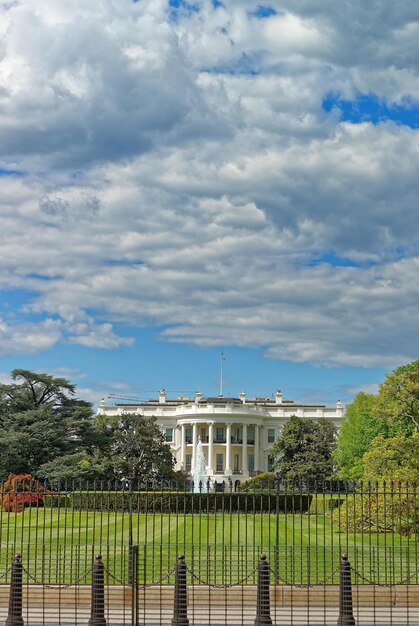Supreme Court to Review Affordable Care Act in Early 2025

Anúncios
Breaking: Supreme Court to Hear Case Challenging Affordable Care Act in Early 2025, reigniting debate over healthcare access and coverage in the United States, with potential wide-ranging implications for millions of Americans.
The Breaking: Supreme Court to Hear Case Challenging Affordable Care Act in Early 2025, marking another critical juncture for the landmark healthcare law and signaling potential shifts in the American healthcare landscape.
Anúncios
Affordable Care Act Faces New Supreme Court Challenge
The Affordable Care Act (ACA), often referred to as Obamacare, has been a cornerstone of American healthcare since its enactment in 2010. However, its future is once again uncertain as the Supreme Court has agreed to hear a case challenging the law in early 2025. This decision has far-reaching implications for millions of Americans who rely on the ACA for health insurance coverage.
The upcoming Supreme Court hearing represents the latest in a series of legal challenges to the ACA, each with the potential to reshape the nation’s healthcare system. Understanding the details of this particular case, its possible outcomes, and the broader context of the ACA’s history is crucial for anyone concerned about the future of healthcare in the United States.
Anúncios
The Genesis of the Affordable Care Act
The Affordable Care Act was signed into law by President Barack Obama with the primary goal of expanding health insurance coverage to more Americans. Key provisions of the ACA include the establishment of health insurance marketplaces, subsidies to help individuals and families purchase insurance, and the expansion of Medicaid eligibility. The law also includes regulations aimed at preventing insurance companies from denying coverage or charging higher premiums based on pre-existing conditions.
Since its implementation, the ACA has faced numerous legal and political challenges. Opponents of the law have argued that it represents an overreach of federal authority and that it has led to higher premiums and limited choices for consumers. Despite these challenges, the ACA has survived multiple Supreme Court cases and repeal efforts in Congress.

Key Provisions of the ACA
- Health Insurance Marketplaces: The ACA established online marketplaces where individuals and families can compare and purchase health insurance plans. These marketplaces offer a variety of plans with different levels of coverage and cost-sharing.
- Subsidies: To make coverage more affordable, the ACA provides subsidies to eligible individuals and families based on their income. These subsidies help to reduce monthly premiums and out-of-pocket costs.
- Medicaid Expansion: The ACA expanded Medicaid eligibility to include more low-income adults. However, the Supreme Court ruled that states could not be forced to participate in the expansion, leading to varying levels of Medicaid coverage across the country.
- Pre-Existing Conditions: One of the most popular provisions of the ACA prohibits insurance companies from denying coverage or charging higher premiums based on pre-existing health conditions. This provision has provided crucial protections for individuals with chronic illnesses and disabilities.
The upcoming Supreme Court case has once again put the spotlight on these provisions and their potential vulnerability. The court’s decision could have a significant impact on the availability and affordability of health insurance for millions of Americans.
Understanding the New Supreme Court Case
The specific details of the case the Supreme Court has agreed to hear are still emerging, but it is expected to center on a challenge to a particular aspect of the ACA. This could involve a dispute over the interpretation of a specific provision, a challenge to the law’s funding mechanism, or a claim that the ACA exceeds the federal government’s constitutional authority.
In order to fully appreciate the potential consequences of this case, it is important to understand the legal arguments being made by both sides. These arguments will likely focus on the text of the ACA, relevant Supreme Court precedents, and the broader implications for the healthcare system.
Legal experts anticipate that the case will revolve around the issue of standing, specifically whether the plaintiffs have suffered a direct and concrete injury as a result of the ACA. The Supreme Court’s decision on this matter could have significant implications for future challenges to federal laws and regulations.
Potential Legal Arguments
The legal arguments in the upcoming Supreme Court case are likely to be complex and technical, drawing on constitutional law, statutory interpretation, and administrative law. Some of the key arguments that could be raised include:
- Standing: The plaintiffs must demonstrate that they have suffered a direct and concrete injury as a result of the ACA in order to have standing to sue. This is a threshold issue that the Supreme Court will likely address early in the case.
- Statutory Interpretation: The parties may disagree on the proper interpretation of specific provisions of the ACA. The Supreme Court will need to determine the meaning of the relevant statutory language, taking into account the intent of Congress and the overall structure of the law.
- Constitutional Authority: The opponents of the ACA may argue that the law exceeds the federal government’s constitutional authority, particularly under the Commerce Clause or the Necessary and Proper Clause.
These legal arguments are not only important for understanding the specific issues in the case, but also for appreciating the broader implications for the balance of power between the federal government and the states.
Stakeholders in the Outcome
Numerous stakeholders have a vested interest in the outcome of the Supreme Court case, including:
- Individuals and Families: Millions of Americans rely on the ACA for health insurance coverage, and the Supreme Court’s decision could affect their access to affordable care.
- Insurance Companies: The ACA has fundamentally reshaped the health insurance market, and the Supreme Court’s decision could have a significant impact on their business operations.
- Hospitals and Healthcare Providers: The ACA has affected the way hospitals and healthcare providers are reimbursed for their services, and the Supreme Court’s decision could alter these payment arrangements.
- State Governments: The ACA has implications for state budgets and healthcare policies, particularly with respect to Medicaid expansion.
Each of these stakeholders will be closely watching the Supreme Court case and preparing for the potential consequences of the decision.
Implications for Healthcare Access and Coverage
The Supreme Court’s decision in the upcoming ACA case could have far-reaching implications for healthcare access and coverage in the United States. Depending on the scope and nature of the ruling, millions of Americans could lose their health insurance coverage, and the stability of the healthcare system could be jeopardized.
The potential consequences of the case include:
- Loss of Coverage: If the Supreme Court strikes down key provisions of the ACA, millions of Americans could lose their health insurance coverage. This could particularly affect low-income individuals, people with pre-existing conditions, and those who rely on subsidies to afford coverage.
- Increased Uninsured Rate: A loss of coverage could lead to an increase in the uninsured rate, which could have negative consequences for public health and the economy. Uninsured individuals are less likely to receive timely medical care, which can lead to more serious health problems and higher healthcare costs in the long run.
- Market Instability: The Supreme Court’s decision could destabilize the health insurance market, particularly if it creates uncertainty about the future of the ACA. This could lead to higher premiums, fewer choices for consumers, and a decline in the quality of care.
Given these potential consequences, it is crucial for policymakers to consider the impact of the Supreme Court’s decision and to take steps to mitigate any negative effects on healthcare access and coverage.

The Future of the ACA Beyond the Supreme Court
Regardless of the Supreme Court’s decision, the future of the ACA will depend on a variety of factors, including the political climate, the actions of Congress, and the policies of the executive branch. Even if the ACA survives the current legal challenge, it is likely to face ongoing scrutiny and potential changes in the years to come.
Some possible scenarios for the future of the ACA include:
- Preservation of the ACA: If the Supreme Court upholds the ACA, the law will remain in place, and millions of Americans will continue to receive health insurance coverage through the ACA marketplaces and Medicaid expansion.
- Partial Repeal or Amendment: Congress could choose to repeal or amend certain provisions of the ACA, even if the Supreme Court upholds the law. This could involve changes to the ACA’s funding mechanisms, regulations, or eligibility requirements.
- Replacement of the ACA: Some policymakers have called for a complete replacement of the ACA with a new healthcare system. However, there is no consensus on what a replacement system should look like, and it is unclear whether such a plan could gain enough support to pass Congress.
The future of the ACA remains uncertain, but it is clear that the law will continue to be a major topic of debate and discussion in the years to come.
Political and Public Reactions to the Case
The Supreme Court’s decision to hear a case challenging the Affordable Care Act has already sparked strong reactions from politicians, advocacy groups, and the public. Democrats have largely condemned the challenge, while Republicans have generally supported it.
Public opinion on the ACA remains divided, with some Americans strongly supporting the law and others strongly opposing it. These divisions are likely to be reflected in the reactions to the Supreme Court case, with supporters of the ACA rallying to defend the law and opponents calling for its repeal or replacement.
Statements from Key Political Figures
Key political figures from both parties have already issued statements regarding the Supreme Court case. These statements reflect the deep divisions over the ACA and the potential consequences of the case.
- Democrats: Democratic leaders have vowed to defend the ACA and to protect the health insurance coverage of millions of Americans. They have accused Republicans of trying to undermine the law and to take away healthcare from those who need it most.
- Republicans: Republican leaders have praised the Supreme Court’s decision to hear the case and have expressed confidence that the law will be struck down. They have argued that the ACA is a failed experiment that has led to higher premiums and limited choices for consumers.
These statements highlight the high stakes of the Supreme Court case and the potential for it to become a major political battleground.
Advocacy Groups and Their Stances
Numerous advocacy groups on both sides of the issue have weighed in on the Supreme Court case. These groups represent a wide range of interests, including healthcare providers, insurance companies, patient advocacy organizations, and conservative and liberal think tanks.
- Supporters of the ACA: Groups such as the American Cancer Society Cancer Action Network, the American Heart Association, and Families USA have issued statements in support of the ACA and have vowed to fight any efforts to undermine the law.
- Opponents of the ACA: Groups such as the Heritage Foundation, the Cato Institute, and the American Enterprise Institute have issued statements calling for the repeal or replacement of the ACA and have argued that the law has been harmful to the economy and to individual liberty.
The involvement of these advocacy groups underscores the importance of the Supreme Court case and the potential for it to have a significant impact on the healthcare landscape.
Potential Scenarios and Outcomes
The Supreme Court has several options in the upcoming ACA case, ranging from upholding the law in its entirety to striking down key provisions. The potential outcomes of the case could have a wide range of consequences for healthcare access and coverage in the United States.
Some of the possible scenarios include:
- Upholding the ACA: The Supreme Court could uphold the ACA in its entirety, which would mean that the law would remain in place and millions of Americans would continue to receive health insurance coverage through the ACA marketplaces and Medicaid expansion.
- Striking Down Key Provisions: The Supreme Court could strike down key provisions of the ACA, such as the individual mandate or the subsidies, which could lead to a loss of coverage for millions of Americans and destabilize the health insurance market.
- Narrow Ruling: The Supreme Court could issue a narrow ruling that addresses the specific issues in the case without fundamentally altering the ACA. This could involve a decision on the issue of standing or a ruling on the interpretation of a specific provision of the law.
The Supreme Court’s decision could have a significant impact on the future of healthcare in the United States.
Impact on States
The Supreme Court’s decision could also have a significant impact on states, particularly those that have expanded Medicaid under the ACA. If the Supreme Court strikes down key provisions of the ACA, states could face significant budget challenges and could be forced to cut back on healthcare services.
- Medicaid Expansion: States that have expanded Medicaid could lose federal funding for their expansion programs, which could lead to a loss of coverage for millions of low-income adults.
- State Insurance Markets: The Supreme Court’s decision could destabilize state insurance markets, leading to higher premiums and fewer choices for consumers.
Given these potential consequences, state governments will be closely watching the Supreme Court case and preparing for the potential impact on their budgets and healthcare policies.
Long-Term Implications
The Supreme Court’s decision could have long-term implications for the role of the federal government in healthcare, the balance of power between the federal government and the states, and the future of the American healthcare system. Regardless of the outcome, the case is likely to shape the healthcare debate for years to come.
| Key Point | Brief Description |
|---|---|
| 🏛️ Supreme Court Case | New challenge to the Affordable Care Act set for early 2025. |
| ⚕️ ACA Provisions | Includes marketplaces, subsidies, Medicaid expansion, and protection for pre-existing conditions. |
| 🩺 Implications | Potential loss of coverage, market instability, and impact on state budgets. |
| 📊 Stakeholders | Impacts individuals, insurers, providers, and state governments. |
Frequently Asked Questions
▼
The ACA, also known as Obamacare, is a comprehensive healthcare reform law enacted in 2010 to expand health insurance coverage and improve access to care for millions of Americans.
▼
The ACA has faced multiple legal challenges since its inception, often questioning its constitutionality or specific provisions, leading to recurring Supreme Court reviews.
▼
The decision will impact individuals and families covered under the ACA, insurance companies, healthcare providers, and state governments managing Medicaid expansion programs.
▼
Possible outcomes include the Court upholding the ACA, striking down key provisions, or issuing a narrow ruling that addresses specific issues without fundamentally altering the law.
▼
The Supreme Court is scheduled to hear the case in early 2025. The exact dates will be announced closer to the time.
Conclusion
The Supreme Court’s decision to hear a case challenging the Affordable Care Act in early 2025 sets the stage for yet another pivotal moment in the ongoing debate over healthcare in America. With millions of Americans relying on the ACA for coverage, the stakes are incredibly high, and the outcome will undoubtedly shape the future of healthcare access and affordability for years to come.





